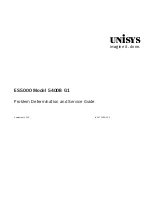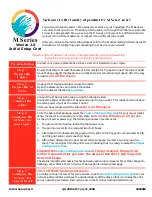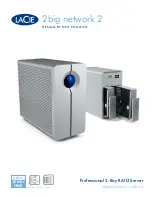
Intel® Server Board S2600CW Family TPS
Intel® Server Board S2600CW Platform Management
Revision 2.4
79
OEM SDR records are used to configure which temperature sensors are associated with which
fan control domains and the algorithmic relationship between the temperature and fan speed.
Multiple OEM SDRs can reference or control the same fan control domain; and multiple OEM
SDRs can reference the same temperature sensors.
The PWM duty-cycle value for a domain is computed as a percentage using one or more
instances of a stepwise linear algorithm and a clamp algorithm. The transition from one
computed nominal fan speed (PWM value) to another is ramped over time to minimize audible
transitions. The ramp rate is configurable by means of the OEM SDR.
Multiple stepwise linear and clamp controls can be defined for each fan domain and used
simultaneously. For each domain, the BMC uses the maximum of the domain’s stepwise linear
control contributions and the sum of the domain’s clamp control contributions to compute
the domain’s PWM value, except that a stepwise linear instance can be configured to provide
the domain maximum.
Hysteresis can be specified to minimize fan speed oscillation and to smooth fan speed
transitions. If a Tcontrol SDR record does not contain a hysteresis definition, for example, an
SDR adhering to a legacy format, the BMC assumes a hysteresis value of zero.
5.3.14.5
Thermal and Acoustic Management
This feature refers to enhanced fan management to keep the system optimally cooled while
reducing the amount of noise generated by the system fans. Aggressive acoustics standards
might require a trade-off between fan speed and system performance parameters that
contribute to the cooling requirements, primarily memory bandwidth. The BIOS, BMC and
SDRs work together to provide control over how this trade-off is determined.
This capability requires the BMC to access temperature sensors on the individual memory
DIMMs. Additionally, closed-loop thermal throttling is only supported with DIMMs with
temperature sensors.
5.3.14.6
Thermal Sensor Input to Fan Speed Control
The BMC uses various IPMI sensors as an input to the fan speed control. Some of the sensors
are IPMI models of actual physical sensors whereas some are “virtual” sensors whose values
are derived from physical sensors using calculations and/or tabular information.
The following IPMI thermal sensors are used as the input to the fan speed control:
Baseboard temperature sensors
CPU DTS-Spec margin sensors
DIMM thermal margin sensors
Exit air temperature sensor
PCH Temperature sensor
Global aggregate thermal margin sensors
















































